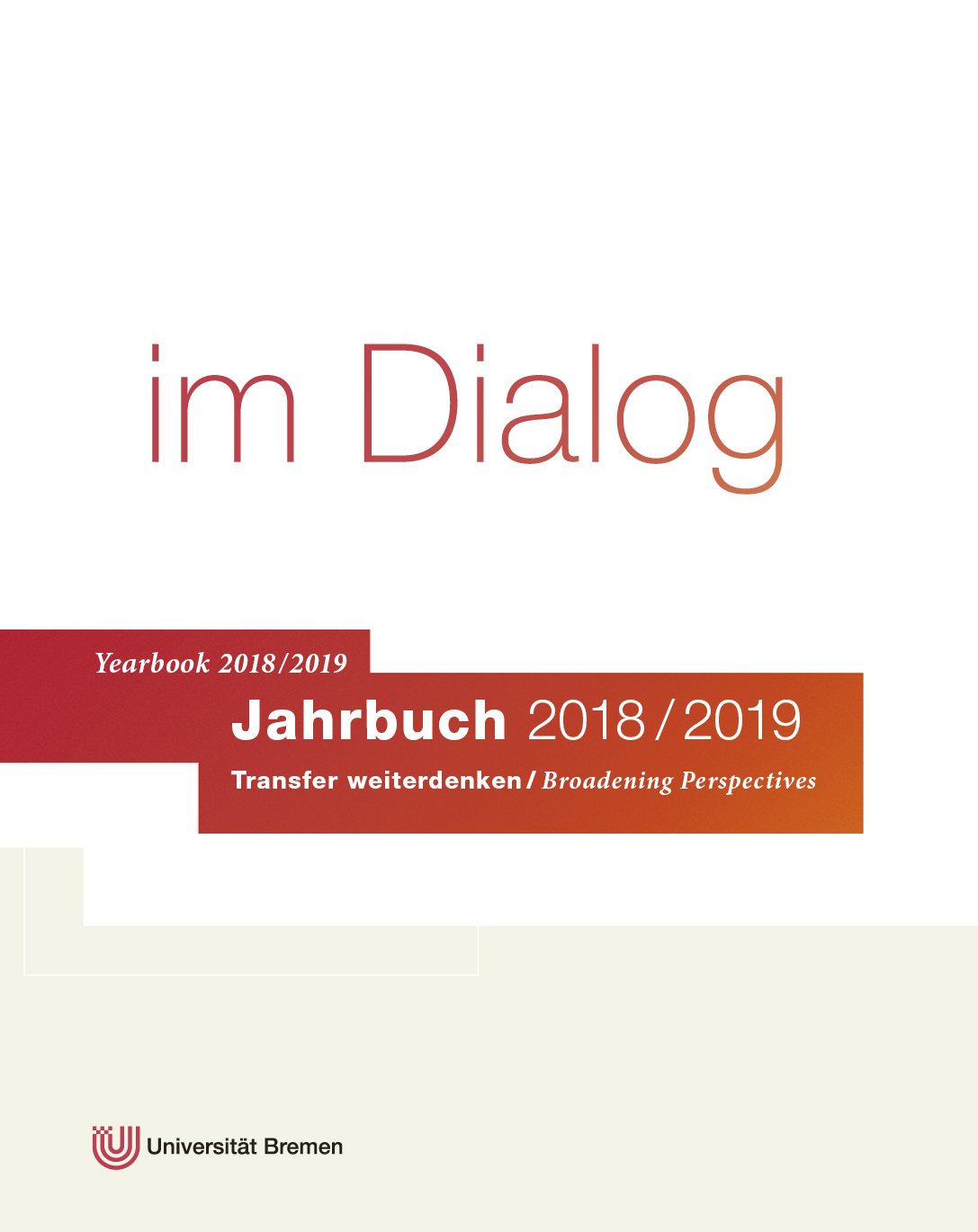2018/2019
Broadening Perspectives
Transfer plays a significant role at the University of Bremen – but what does the term “transfer” mean exactly? The university sees transfer as a cooperative process between society, businesses, administration, and academia. Researching together, learning from each other, discussing as equals, and taking on responsibility for society are important aspects of this process.
Employees of the university are active in a myriad of ways with regard to transfer: they give lectures, put on interactive events and projects for citizens, and organize congresses with participation from the public. They are also in demand in advisory roles. Additionally, they keep interested parties abreast of their research and teaching projects via blogs and in social media. All of this is a team effort and can only work in collaboration with other researchers, employees, and
students, as well as partner institutions.
For our yearbook theme, we will introduce you to people from different disciplines who embody our idea of transfer. They are just a small sample of many employees of this university who are dedicated to dialogue on a day-to-day basis.

